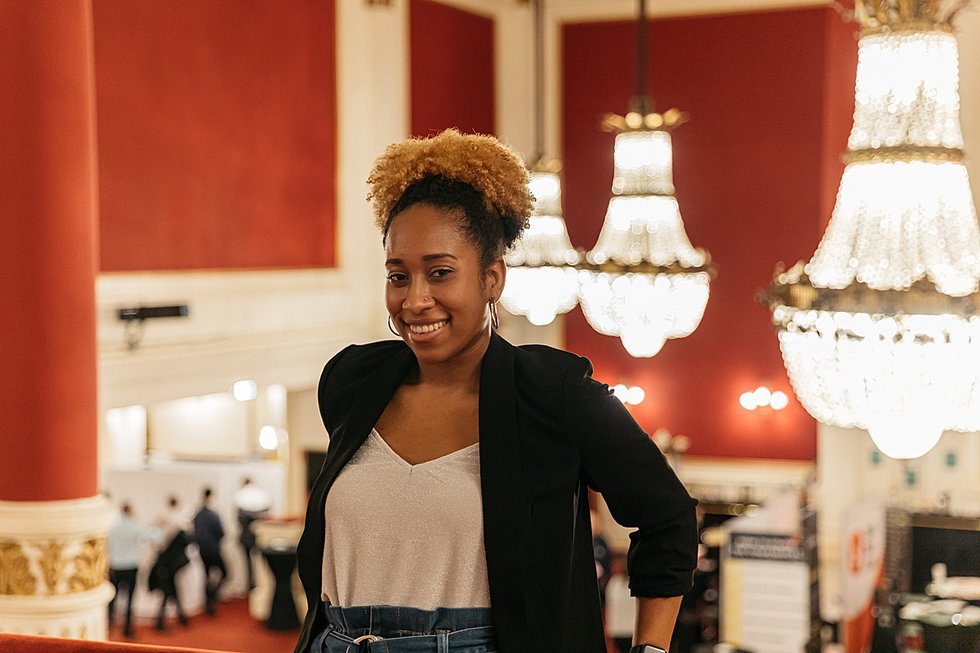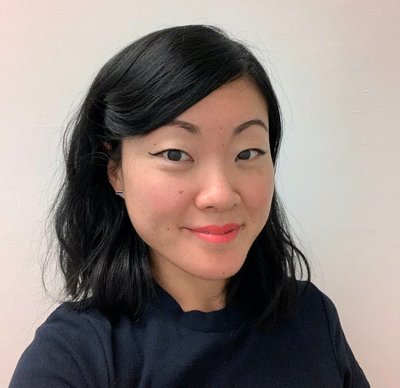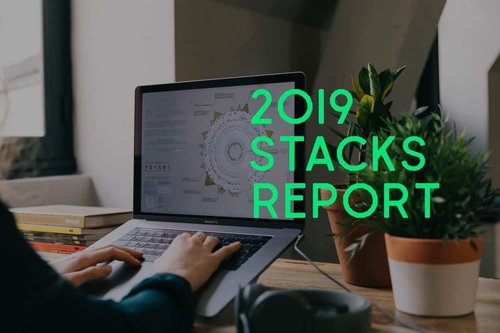Kaya Thomas, the iOS Developer Working to Achieve Inclusivity in Tech
04 mars 2020
6min


Freelance writer
Kaya Thomas started her tech career as an intern at Time, Inc. It was 2014, and high-tech companies were launching major initiatives to increase diversity within their technical workforces—the coders, data scientists, and engineers. As part of their initiatives, more than two dozen companies, including Apple, Facebook, Microsoft, and Google, released reports showing how the industry was dominated by white and Asian men.
Five years later, little had changed statistically in the racial makeup of the tech workforce. At the beginning of 2019, diversity reports released by Google and Microsoft showed that their tech employees who identified as black or Latinx had increased by less than 1%. “Challenges persist. Only a few companies have been able to make strides,” says Thomas, who is now an iOS developer, mentor, and speaker who addresses cultural topics for the development community.
Thomas works for the San Francisco-based wellness company Calm. In her day-to-day work, she contributes to the app’s technical development, implementation, and maintenance. In her spare time, she works on her passion project, an iOS and Android app called We Read Too, which helps young readers discover books written by authors of color. Since its launch in 2014, its directory of picture books, middle grade readers, and young adult fiction has grown to include almost 1,000 titles.

For Thomas, mentorship and sponsorship are key to addressing the challenges of representation that persist in the industry. She believes a main reason why companies’ diversity initiatives have failed to gain traction is because of their focus on entry-level positions. She has observed how groups of excited and motivated young people from diverse backgrounds have come into organizations but can’t relate to any of the company’s leaders, or see themselves in their positions. “It can be demoralizing because you [think], ‘Oh, my career probably has a ceiling.’ You don’t really see where to go from [entry-level positions], so a lot of people drop out,” she says.
If long-lasting change is going to happen within the tech workforce, Thomas points out that more initiatives need to be made to increase representational leadership at the executive, management, and director levels—positions that are predominantly held by white men. The industry has seen little change within the demographics at the executive, senior official, and management levels since a 2014 report published by the US Equal Employment Opportunity Commission, which found that more than 83% of leadership positions at US-based tech companies were held by white Americans. The report also found that nearly 80% of high-tech leadership positions were held by men, while 20% were held by women.
Half a decade later, the overall number of women hired into technical positions at Facebook, Google, Apple, and Microsoft had increased incrementally to make up 20–23% of the workforce at each company, according to data published by Wired. But while more women are being hired to fill technical positions, their rate of attrition is more than double that of men. The most recent data published by the National Center for Women & Information Technology cites that just over 40% of tech workers who leave their positions are women, compared to 17% of men. The report also found that more than half of the women in tech leave their companies at mid-level points in their careers.
For Thomas, mentorship and support networks have been instrumental in her becoming a developer. She sees mentors’ commitment to building relationships and coaching a junior workforce as a way to address the systemic issues that underlie representational disparity in tech. Mentorship should come from technical workers and managers from underrepresented groups, as well as from white male developers. “You have to really look at who you’re surrounding yourself with, and who you’re paying it forward to,” says Thomas. “If you’re a white male developer and all your friends are white male developers, are you mentoring [and] referring all white male developers? You have to expand your reach, expand your network, expand who you surround yourself with, the communities you’re volunteering with and mentoring.”

Numerous studies in business management have addressed both the benefits and challenges managers experience in leading diverse teams. A 2016 paper titled Managing and Leading a Diverse Workforce: One of the Main Challenges in Management, published by the journal Procedia, states that an essential first step for organizations to support diverse teams is to “secure top management commitment to diversity,” and also that managers should proactively “take several steps to alter values and attitudes and promote the effective management of diversity.”
One argument floating around the industry that Thomas challenges is how diversifying the workforce equates to lowering the hiring bar. “You really only hear folks talk about lowering the bar when they’re talking about underrepresented people. This is inherently very problematic, because it’s [based on] the idea that we are automatically not good enough,” she says. “So we have a higher standard to meet in order to even get at the base line.” As with many industries, innate and learned ability in software can only take aspiring career builders so far. And as with business or creative fields, Thomas points out that navigating a path in tech is “about who you know, the network you’re able to create, and the reputation that you’re able to build for yourself. A lot of it is referral based.”
Representation and mentorship have been important for Thomas in her own journey. While she was a student at Dartmouth College, she studied environmental science and dabbled in a few computer science courses. Her decision to pursue programming came after she watched a Ted Talk given by Kimberly Bryant, the founder and CEO of Black Girls Code, a nonprofit organization that provides technology education to African-American girls. In the talk, Bryant described how, as a child growing up during social and cultural change in the 1960s, it was “not accidental to find myself at the forefront of this new revolution.” This new revolution, one of “fundamental change and transition” is happening now “in our society, with the onset of the technological and innovation economy,” Bryant said. “I bounded upon that as a change agent, not just for girls that look like me, but for women in general.”
Thomas pursued a BA in computer science at Dartmouth, launching We Read Too while she was still in school. When she got her first internship at Time, she emailed Bryant to thank her for her work and the impact it had had on her. Bryant and Thomas remained in touch. Bryant contacted Thomas to let her know about opportunities and to encourage her to apply for scholarships and awards. Having guidance was game-changing for Thomas, who was the first in her family to pursue a tech career and who felt like she didn’t have anyone else to talk to about her options. “It’s very hard to be in an industry where you don’t know anyone. Knowing that I had a support network, or someone who was looking out for me, was incredibly important,” says Thomas.

Thomas volunteers for Black Girls Code, as well as for Google’s Made with Code, an initiative launched to empower middle school and high school girls by teaching them programming skills. At a 2014 New Orleans hackathon, Thomas guided a group of girls through the ideation and prototyping of an app that would help users to identify healthy or abusive relationships. The app won the hackathon, and Thomas kept in touch with some of the participants, one of whom graduated from college and currently works in IT. Last year, Thomas met a girl she had once mentored and who was volunteering as a mentor herself.
Like Bryant, Thomas’s work toward industry diversity comes from the inspiration she found from the community she grew up among. There was not a defined moment that triggered her involvement in mentorships or speaking events on equality topics, but rather, it was the influence from her family that instilled in her an alignment between her work and values, and the need to speak about what she believes in. “I don’t want to empower and pull up people behind me to join an industry that’s going to make them have a bad experience or make them want to leave,” says Thomas. “Because I have a platform, it’s important for me to make clear that we need to make change.”
Along with her full-time role at Calm, Thomas plans to expand We Read Too’s features. And as well as her mentorship and speaking events, Thomas has recently contributed a chapter on iOS unit testing and integration for the book Swift For Good, from which all the proceeds from sales will be donated to Black Girls Code. Thomas acknowledges that the impressive experience she has gained is something she is proud of—including being honored for her volunteer work by Michelle Obama at 2015’s BET’s Black Girls Rock! award show. “It feels that in order to succeed as an underrepresented person in this industry, you have to be exceptional,” says Thomas, highlighting a unique pressure that underrepresented people feel when making headway in the tech industry.
One day, the demographics of the tech workforce may be equalized, and identifying as a woman or black won’t make you an exception in the industry. Until then, Thomas is keeping her focus on encouraging people to pay forward what they’ve learned. “These girls go into the workshops and the events, and they learn, and some discover that they love technology, and they continue with it,” she says. “It’s a cycle of paying it forward. That’s been the most impactful thing.”
This article is part of Behind the Code, the media for developers, by developers. Discover more articles and videos by visiting Behind the Code!
Want to contribute? Get published!
Follow us on Twitter to stay tuned!
Illustrations by WTTJ

Inspirez-vous davantage sur : Career hacking
Because being a developer is not just about coding, we want to share dedicated tips on soft skills and career paths, help you stay up-to-date with your favorite technologies, and learn more about the job market.

Computing’s Gender Divide: Why Tech Is Stuck in the 1980s
Discover why the percentage of women who held computing-based jobs has been in a steady decline since the 1980s.
14 sept. 2020

5 Remote-work Lessons From the Open-source Community
The open-source movement has a few things it can share about remote working with the wider software-development community.
09 juin 2020

2019 Stacks Report
The most-mentioned technologies in the job specifications published on WTTJ's website in 2019 and the average number of applicants per technology.
21 avr. 2020

Engineering Management: An Interview with Saad Rehmani
Saad Rehmani, the VP of Engineering at Reddit, shares his most effective management strategies to handle the COVID-19 crisis.
07 avr. 2020

Engineering Management: An Interview with Rich Archbold
Rich Archbold, the VP of Engineering at Intercom, explains how to develop a management style and how to transition to managing other managers.
17 mars 2020
La newsletter qui fait le taf
Envie de ne louper aucun de nos articles ? Une fois par semaine, des histoires, des jobs et des conseils dans votre boite mail.

Vous êtes à la recherche d’une nouvelle opportunité ?
Plus de 200 000 candidats ont trouvé un emploi sur Welcome to the Jungle.
Explorer les jobs